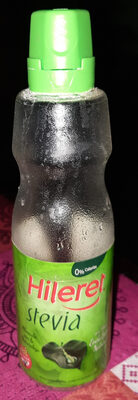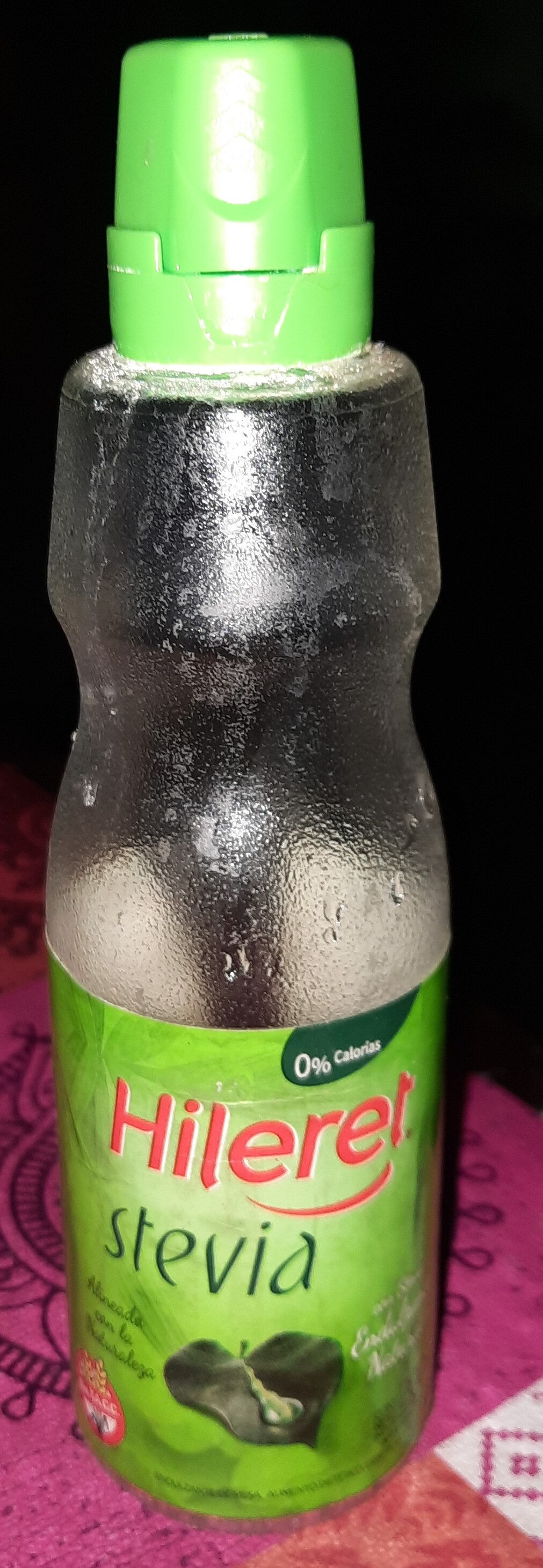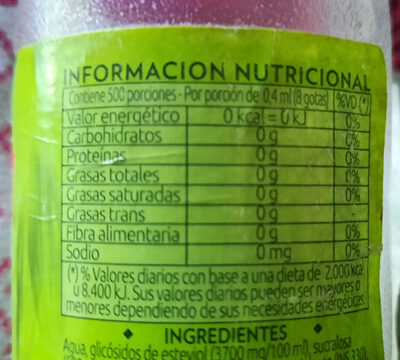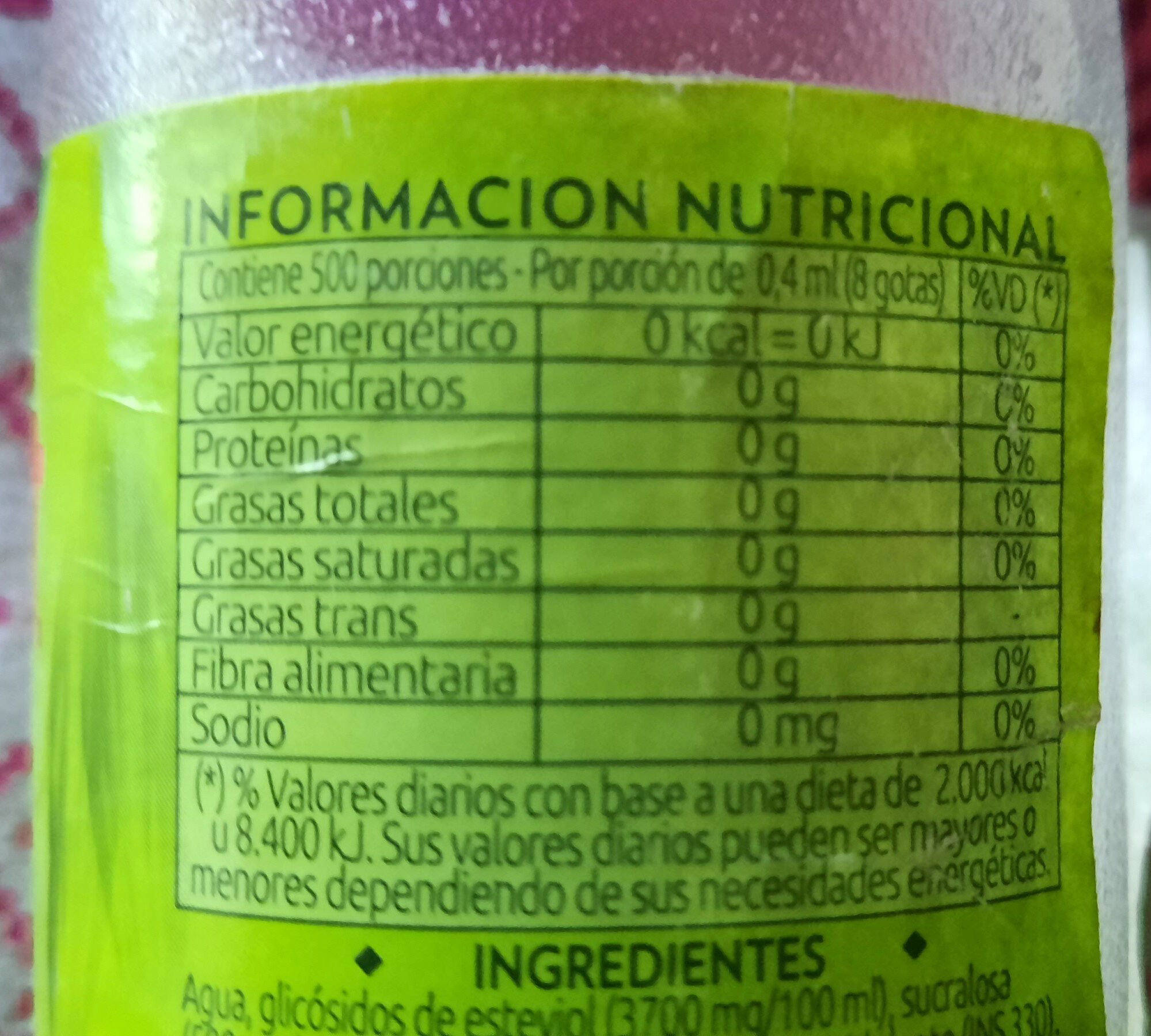Hileras Stevia - Hileret - 200ml
Aquesta pàgina del producte no està completa. Podeu ajudar a completar-la editant-la i afegint-hi més dades a partir de les fotos ja disponibles, o fent-ne més amb l'aplicació de androide o iPhone / iPad. Gràcies!
×
Codi de barres: 7794940000796 (EAN / EAN-13)
Quantitat: 200ml
Empaquetament: Plàstic
Marques: Hileret
Categories: Edulcorants, Additius alimentaris, en:Sugar substitutes, en:Artificial sugar substitutes
Etiquetes, certificacions, premis:
Lliure de gluten, es:Sin TACC
Origen dels ingredients: Argentina
Botigues: Coto
Matching with your preferences
Salut
Processament d'aliments
Additius
Anàlisi dels ingredients
Entorn
Empaquetament
Transport
Report a problem
Fonts de dades
Producte afegit per kiliweb
Última modificació de la pàgina del producte per packbot.
La pàgina del producte, també editada per flipwared, grucho, openfoodfacts-contributors, org-app-elcoco, yuka.RzU5UVNMODdtdjBubXZadTJDSHo5OUZvbWFXaVR6L29MOWRMSVE9PQ.








